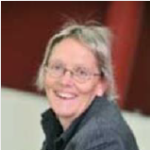CP Link: Developing a specialised link worker role to support adults with cerebral palsy to age well
Start date
September 2024End date
March 2027Overview
Cerebral palsy is a lifelong physical disability which affects around 130,000 adults in the UK. Research on the ageing needs of adults with cerebral palsy is scarce. However, existing studies highlight that individuals with cerebral palsy face numerous physical,mental and social health challenges as they age.
By the age of 40, someone living with cerebral palsy may experience physical health issues typically observed in the general population starting in their late 60s, such as falls, joint replacements and needing to use mobility aids.
Alongside the physical challenges, mental health issues are prevalent among older adults with cerebral palsy, including anxiety, depression, loneliness and societal exclusion.
Additionally, social challenges include increased social participation, discrimination and limited access to specialised health services. Many older individuals with cerebral palsy are primarily under the care of general practitioners, who may not be fully equipped to address their complex healthcare requirements. It has been observed that despite the increasing complexity of their needs as they age, there is a lack of specialised care for this population.
One approach the UK government has proposed to offer is more tailored support for individual's physical, mental and social health needs through the use of social prescribing. Social prescribing is a healthcare approach where patients are referred by link workers to non-medical services, such as community activities and social support groups.
Social prescriptions connect individualsto community resources and make use of existing local support, including exercise programmes, clubs and various support networks.
Aims and objectives
The aim of this project is to develop and evaluate in collaboration with UP - The Adult Cerebral Palsy Movement, our community partner, a specialised link worker role to support older adults with cerebral palsy. The project has three aims:
- To determine how ageing with cerebral palsy impacts people and to identify where community support is needed to promote health and wellbeing
- To co-develop, "ageing with cerebral palsy", training materials for the new link worker role
- To assess the impact of the link worker role over a period of 12 months.
Structure
The first part of this project aims to better understand the ageing experience of adults with cerebral palsy and community support that they receive.
We will interview 15 to 20 adults aged 40 or older with cerebral palsy based in London to explore how ageing has impacted them, how they use resources in their community and what resources they feel could help them age well. The information we get from this study will allow us to better understand what kind of community support people ageing with cerebral palsy value and what support they feel they need.
During the second part of the project, we will co-develop the, "ageing with CP", training materials for the new link worker role, drawing on a range of resources. We will look at existing research and government documents to see what support is currently available or suggested to be important for older adults with cerebral palsy and we will use the findings from our first study. We will map the community resources available in the pilot region, which is North Central London. Finally, we will hold workshops with people ageing with cerebral palsy, link workers and healthcare professionals to create the training materials.
The training materials will then be used in the third part of the study to train a linker worker to support people with cerebral palsy for a 12 month period. The final study will assess the impact of the new role using outcoms such as the number of people using the service provided by the link worker, the impact of the service on their wellbeing and their overall feedback. This feasibility study aims to determine the viability and effectiveness of the link worker role insupporting the complex needs of the individuals ageing with cerebral palsy.
This project entails ongoing collaboration with both a lived experience advisory group and a stakeholfer advisory group, ensuring that multiple perpsectives shape our work.
Funding amount
£295,000
Funder
Dunhill Medical Trust
Team
Principal investigator

Dr Kimberley Smith
Associate Professor in Clinical Health Psychology
Researchers

Dr Erica Ranzato
Research Fellow in Psychology

Charlotte Cole
Research Assistant
Co-investigators

Emma Livingstone
CEO of UP - The Adult Cerebral Palsy Movement

Miriam Creeger
Chartered Physiotherapist, Clinical Lead and Trustee of UP - The Adult Cerebral Palsy Movement
Dr Val Stevenson
National Hospital for Neurology and Neurosurgery, UCLH

Professsor Cherry Kilbridge
Brunel, University of London

Professor Karen Lowton
University of Sussex

Professor Meriel Norris
Brunel, University of London

Professor Christina Victor
Brunel, University of London
Conference posters and presentations
As part of our commitment to open science and transparency, this section includes posters and presentation materials delivered at academic conferences, highlighting key insights from this research project.
Ranzato, E., Livingstone, E., Creeger, M., Stevenson, V., Lowton, K., Norris, M., Kilbride, C., Victor, C., Smith, K. (2025, April). Supporting adults with cerebral palsy to age well: Development and pilot of a specialised link worker role. View poster presentation (PDF). Vivensa Annual Symposium, London.
Ranzato, E., Livingstone, E., Creeger, M., Stevenson, V., Lowton, K., Norris, M., Kilbride, C., Victor, C., Smith, K. (2025, May). CP Link project: Bridging disciplines to support adults with cerebral palsy to age well. View poster presentation (PDF). Doctoral College PGR/ECR conference, University of Surrey, Guilford.
CP Link Newsletter
The CP Link newsletter is available in both PDF and PowerPoint formats to support accessibility. Please choose the version that works best for you.